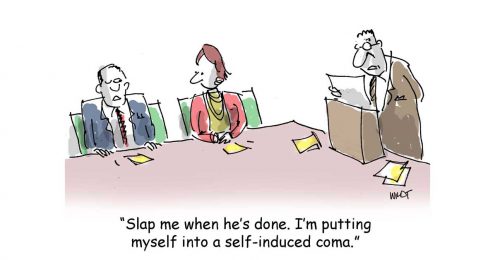For most nonprofits, hiring a top fundraiser is absolutely critical. It’s also really hard.
There are three steps to making a great development hire. The first two we’ve covered previously.
But it’s one thing to know what questions to ask. It’s equally important to know the answers you should be looking for. What might you hear from a development candidate that would tell you she’s a home run?
This week, it’s all about the answers.
HOW A TOP FUNDRAISER WILL ANSWER INTERVIEW QUESTIONS
1. What do you enjoy about fundraising?
“I love fundraising. I love connecting people to causes because I know it makes them feel really good to give to a cause they care about. I’m constantly surrounded by the most interesting people who are really engaged in making the world a better place. These folks inspire me. And I love how clearly I can see the importance of my work. After all, money = programs.”
2. Tell me the story of the largest individual ask you yourself have ever made. Did you get the gift? Why or why not?
- Did the candidate make the ask?
- What kind of prep was done?
- Ask for a full diagnosis. What was the follow up strategy for the ask?
- Listen for strategy, listen for what the candidate learned about the donor, listen for enthusiasm, listen for attention to detail.
3. What do you LOVE about this organization?
Here you’re looking to see how much homework the candidate did about the org – on the website, via the press, the 990, etc. And you are looking for the candidate’s ability to articulate the work with passion and eloquence.
4. What are the best questions to ask a prospect at a donor lunch?
“Tell me about your approach to philanthropy. What are the causes you care about? What do you know about our organization?
Would you consider a gift?” (What more important question can you ask?)
5. Do you donate to other causes? Tell me about your experience as a donor.
If your candidate does not give anything to another cause, it’s a red flag. A fundraiser should be a donor. Listen in the story for why s/he gives, what kinds of issues are important for her/him in terms of stewardship, how knowledgeable the candidate was about the organization. Is your candidate a smart and passionate philanthropist in her/his own right?
6. What are the 3 ideal characteristics of a 5-star Development Director?
Any of these are great:
- Real passion and commitment for the organization
- Attention to detail
- Enthusiasm for meeting new people and learning about what makes them tick
- Joy and positive attitude – understands the privilege of getting paid to do work that matters.
7. Describe the ideal relationship between the lead fundraiser and the Executive Director.
“It’s a partnership. Ideally the two of them work hand-in-hand to meet goals, to strategize about asks, to build solid events, to create talking points for grants. It’s also about setting the E.D. up to succeed – making sure she has what she needs to succeed. And yes, sometimes it’s about being a bit of a nudge. E.D.’s are pulled in a million different directions and need to be reminded / nudged to play their fundraising role.”
8. How do you build a strong relationship with the board without being seen as a nag?
“I like to work with board members to develop their own fundraising plan, however small it may be. We build it together but the board member owns it. I ask about what the board member needs from me to hit her goals. I work to deliver those things. This kind of process can really help.”
9. Does a board need a development committee? What should its role be?
“Yes, yes, yes! But one of the biggest challenges I see is that there is no clarity about its role and so the void is filled by nagging the staff for reports. The board development committee should be the lead champion for the board to reach its collective fundraising goal each year. It should play the role of peer accountability so that the staff isn’t put in the uncomfortable position of nagging.”
10. How do you balance managing the fundraising work and the staff with the need to be out, meeting and asking?
“It’s all about managing your time and not letting the organization manage you. And it’s about planning. I look at my calendar in 60-day blocks. During that time, how many meetings should I have? Then I make a list of the people I most need to see during that block. Next to the prospect’s name I put the name of a board member or the E.D. (if either is needed for the meeting). I block out X hours at the beginning of each week to make calls to set meetings. I do a 30-day check-in and then begin to look ahead to the next 60-day block. It’s all about attention to detail and planning.”



